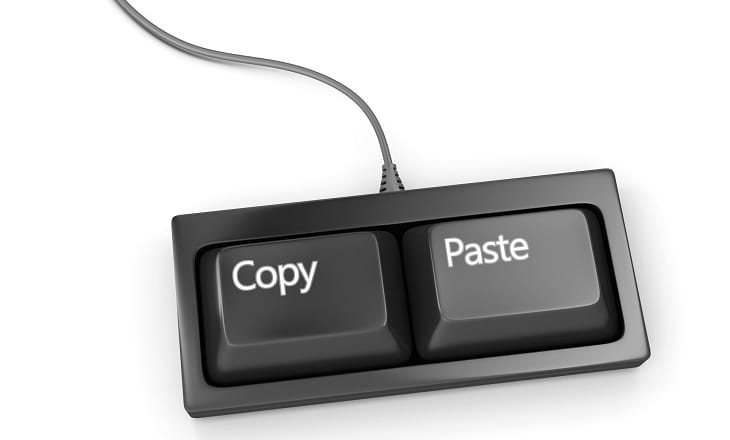The forces behind currency markets, and what makes them tick, is always an interesting topic. Currency movements affect every part of society, from travellers to financiers, writes FXTM Head of E-Commerce, Nandik Barbhaiya.

Nandik Barbhaiya, FXTM
The strength of a country’s currency is often in direct proportion to their fiscal health and political stability, and this is why forex prices can be highly volatile. Recent examples of how events impact the markets include the drop of the GBP by 20% in the two weeks post the Brexit vote, the South African rand’s demise due to growing political uncertainty and the Turkish liras volatility, for the same reasons.
However, by far the greatest currency event in recent times was the Swiss franc/euro fallout, when out of the blue on January 15 2015, the Swiss central bank did a U turn and announced that it would unpeg the Swiss franc from the euro. The result was havoc in the markets; the franc rose a massive 30 percent against the euro and globally, investors either lost or gained massive amounts of money.
Large swings in currency prices are relatively rare and not of much interest to traders, unless of course they are on the winning side. Traders are, however, interested in the ‘business as usual’ currency fluctuations that we see every day. In the late 90’s we saw a number of online platforms become available to traders, prior to that, forex trading was restricted to large financial institutions. Largely as a result of the internet (and more recently mobile phones), retail trading is growing rapidly and it is estimated that in 2016, the volume from retail foreign exchange trading represents 5.5% of the entire foreign exchange market, a massive $282 billion in daily trading turnover.
While the volatility of forex markets attracts investors who want to try their hand at trading, many interested individuals are tentative. Not all investors have the discipline or tenacity or emotional make-up to thoroughly learn and master the craft. Traders have to understand both the technical and fundamental aspects of trading, in other words, they need to know that the factors that play a role in moving markets.
Forex transactions are conceived and concluded in tenths of a second; human nature and emotions such as fear and greed, coupled with a lack of industry knowledge, can cause a trader to make mistakes. It is for this reason that many financial institutions are attempting to replace human involvement with financial executions altogether. Artificial Intelligence (AI) is a science that is becoming increasingly relevant in the financial arena. In theory, AI could eliminate the potential for human error. To date AI has not been entirely possible with forex because it cannot take into account the multitude of economic combinations that affect a currency. For example, events such as earthquakes, droughts, war, political unrest or the abrupt fall of national leaders, can strongly influence the price of a currency. Until AI gets that right, humans will mostly be relying on their analytical skills to trade the markets – at least for the foreseeable future.
Forex brokers have recognised that would-be traders possess a desire to trade, but often lack the experience or confidence to do so. It is for this reason that they have developed Expert Advisors (EAs). These are essentially automated trading algorithms that allow traders to code the parameters of their trading strategies. These highly complex but simple to use tools assist traders to refine their trading strategies and gain a greater potential advantage over the markets.
However, EAs are of no use to a novice; it would be difficult for someone who is just starting out to understand coding parameters, entry and exit strategies and the host of other technical terms governing success. This is why Copy Trading programmes have become extremely popular – they offer less experienced traders the opportunity to follow the trades of suitable traders. Products like FXTM Invest, provide a welcome middle ground. They are not as technical as an EA, but they enable traders to make decisions based on input from a suitable Strategy Manager.
Another reason Copy Trading platforms are popular is the fact that they benefit both parties. The Strategy Managers make their trades public, investors copy those strategies (earning on the successful trades), and the Strategy Manager makes a commission from the Investors.
It is interesting times in the currency markets, 2107 has seen significant shifts in governments and public sentiment which always fuels volatility. Products like copy trading platforms will continue to spark interest in the FX arena because they give traders at all levels the opportunity to increase their earnings from profitable trades and ease tentative traders into the market.
Disclaimer: The content in this article comprises personal opinions and ideas and should not be construed as containing personal and/or other investment advice and/or an offer of and/or solicitation for any transactions in financial instruments and/or a guarantee and/or prediction of future performance. FXTM, its affiliates, agents, directors, officers or employees do not guarantee the accuracy, validity, timeliness or completeness of any information or data made available and assume no liability as to any loss arising from any investment based on the same.
Risk Warning: There is a high level of risk involved with trading leveraged products such as forex and CFDs. You should not risk more than you can afford to lose, it is possible that you may lose more than your initial investment. You should not trade unless you fully understand the true extent of your exposure to the risk of loss. When trading, you must always take into consideration your level of experience. If the risks involved seem unclear to you, please seek independent financial advice.
NOTES TO EDITORS
The FXTM brand provides international brokerage services and gives access to the global currency markets, offering trading in forex, precious metals, Share CFDs, ETF CFDs and CFDs on Commodity Futures. Trading is available via the MT4 and MT5 platforms with spreads starting from just 1.3 on Standard trading accounts and from 0.1 on ECN trading accounts. Bespoke trading support and services are provided based on each client’s needs and ambitions – from novices, to experienced traders and institutional investors. ForexTime Limited is regulated by the Cyprus Securities and Exchange Commission (CySEC), with license number 185/12, licensed by the SA FSB with FSP number 46614, and registered with the UK FCA under reference number 600475. FT Global Limited is regulated by the International Financial Services Commission (IFSC) with license numbers IFSC/60/345/TS and IFSC/60/345/APM.
